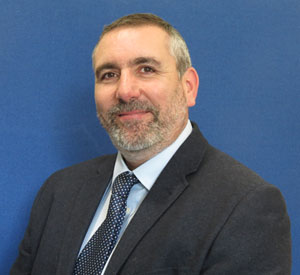The finance of farming: talk to an expert in their field

It’s been a turbulent time for farmers over the past year or so. GARY BROCKWAY, who recently joined accountancy firm Page Kirk in Nottingham as a partner, reviews some of the developments and their implications.
So we’ve taken two trips to the polls – the 2016 Brexit referendum and the rather unexpected 2017 general election. We’ve seen two different Prime Ministers. And, of course, the discussions are now under way with Brussels over the UK’s exit from the European Union. It’s certainly been a turbulent time politically over the past year.
Everyone is affected, but the farming community probably has reason to be particularly concerned about the unpredictability of our current situation.
When it comes to Brexit specifically, there are several key issues for those in the agricultural sector. Two of them are pretty fundamental: subsidies and the labour market.
It’s widely believed that the subsidy structure will be remodelled after Brexit and it might well be the case that there could be a large reduction in the sums available. At the same time, Meurig Raymond, President of the NFU, told the body’s annual conference that another 90,000 seasonal workers will be needed by 2021. Brexit has raised big questions marks over immigration and, at the moment, the issues haven’t yet been resolved. The fear is that food might end up rotting if there is no one available to pick the produce.
While both questions sound potentially like huge risks, I believe that with help from the Government, they can become a massive opportunity. As farmers become less reliant on subsidy and perhaps more business minded, they will explore opportunities to diversify their operations, build sustainable business plans and use advances in technology to minimise risk.
It’s clear that it will be more important than ever for members of the farming community to take the best professional advice. Every business has to cope with risk and farmers more than most. But we also know how resilient agriculture is!
Another issue on the horizon is the Government’s Making Tax Digital programme. This flagship policy of HMRC is designed to bring all businesses into the digital world when it comes to tax. The good news is that the policy has been softened and only businesses with a turnover above the VAT threshold (currently £85,000) will be required to keep digital records, and just for VAT purposes.
The requirement only comes into force from April 2019 and it’s not until at least 2020 that businesses will be required to update HMRC quarterly in relation to other taxes. Although this buys a little more time, the process is inevitably going to happen. So once again, my advice is to speak to your accountants as soon as possible to find out whether you need to comply and the steps you need to take.
Gary Brockway has recently joined the partnership at Page Kirk, Chartered Accountants and Chartered Tax Advisers based in Nottingham, to enhance their offering to agricultural clients. He is well known in the Midlands farming community and sits on the Farming and Rural Business Special Interest Group of ICAEW, a leading accountancy body.
To discuss the matters raised in this article, talk to an expert at Page Kirk by calling 0115 955 5500 or emailing enquiries@pagekirk.co.uk.